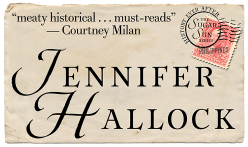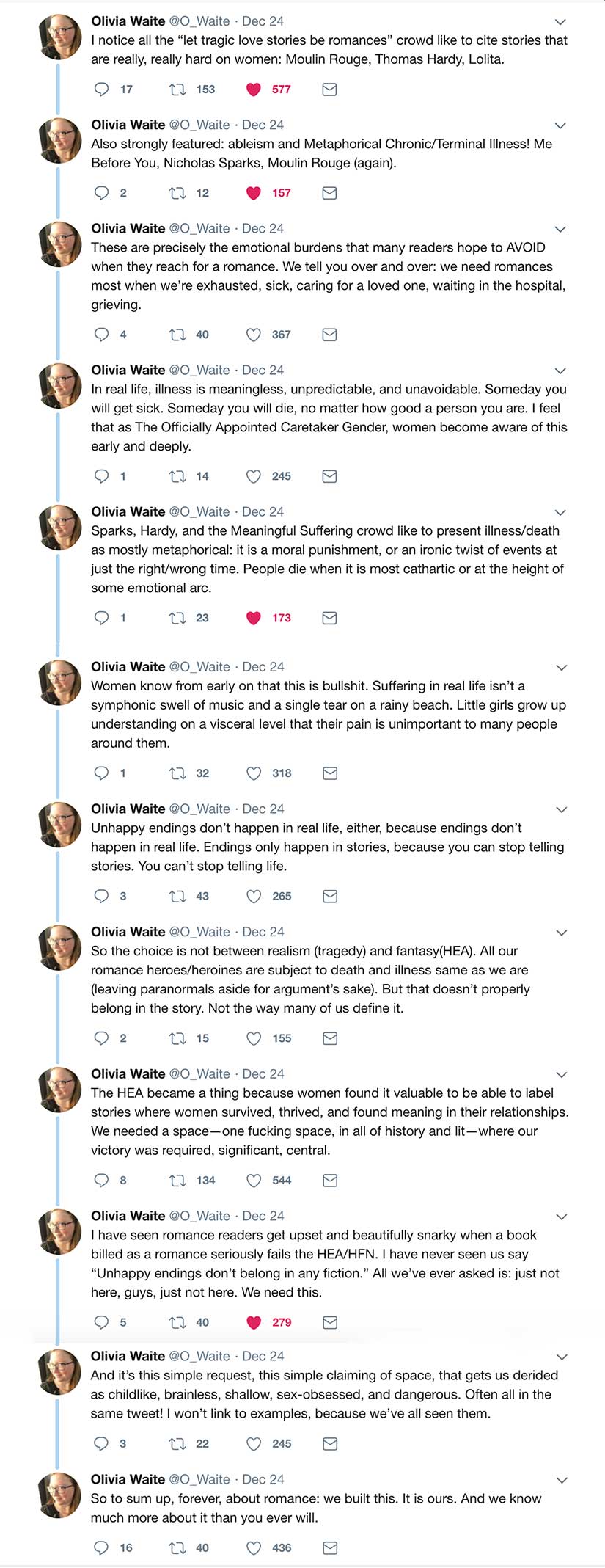You might think mixing romance and history would be a highly-marketable combination, but there are a few landmines. Fans of historical fiction (who often know little about romance) want you to take out the happily-ever-after to make your book more “realistic” and “serious.” Fortunately for me, Olivia Waite came along and explained the problem with taking away my heroines’ HEAs:
Jeannie Lin added that the Asian women in her family have suffered through “regime change, through executions, through so many personal tragedies—and still found a way to find happiness. That story is just as real.” As I’ve heard Beverly Jenkins say several times at conferences: even in the toughest of times, people still have picnics, birthday parties, and fall in love.
Of course, some of the worst bits are history are not going to make it to the page in a romance. (Hello, syphilis? Around ten percent of the general American population had the disease by 1900, and I choose to entirely ignore that fact.) I have written and discussed in interviews why I chose to set my books in the Philippine-American War. (They are not the typical Regency duke books, for sure.) I used my own scholarship on American colonial rule in the Philippines to fabricate my own fictional chronotope: I choose when to be constrained by real history and when to hold onto a more modern sensibility.
Writers have been fabricating chronotopes in historical fiction for centuries. Antony and Cleopatra—while not a romance—is proof that Shakespeare made this same choice. The play is based partly off the history he had at his disposal, Plutarch’s Lives, but he also added scenes and changed historical facts to suit the story. Some scholars even say that Shakespeare was really writing a political commentary of his times, using Elizabeth I as his model for Cleopatra. While Shakespeare is the platinum standard of literature now, keep in mind that he wrote popular fiction back then. He was a storyteller.
That’s what romance is: good story-telling that makes you feel. Tess Sharpe came up with a pretty exhaustive list of what I mean by this:
But let’s not ignore sexual chemistry. One of the reasons that romance makes a person feel so intensely—and that is a big part of its appeal—is that the reader is so heavily invested in the two main characters and their relationship. How does that happen? How does the reader become so intimately involved? By being present at the most intimate of scenes, when the armor of clothing is shed and the characters become figuratively and literally naked. The sex scenes advance the plot because they are about navigating the relationship in its most raw state.




